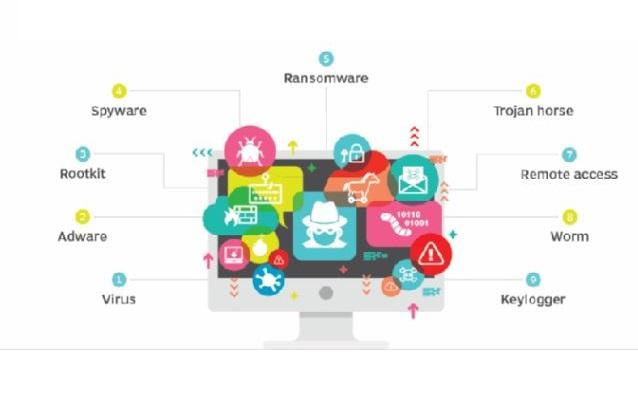Microsoft Windows operating system has evolved a lot with tons of advanced features and one of them is Windows Defender. It has been offering security services to Windows however just Windows Defender is not good enough to protect your computer from different types of viruses, malware, spyware, trojan and other infections. We still require the best antivirus software to add an additional layer of security to our computer.
Ever wondered how does an antivirus program detect malware? Well, viruses and infections are coded programs to infect and harm users. On the other hand, antivirus programs are designed to shield your computer from such malicious attacks. Let’s explore how do antivirus detect viruses and which is the Best FREE Antivirus Software to safeguard our computer and data.
Malicious Family
There are different types of infections developed for different purposes. Some are designed to harm while others are designed to spread infection, steal information, cause financial losses, or market their products.
Virus: A designed code to trigger and spread infection. An algorithm to infect system files, apps and other files and corrupt the boot code.
Malware: Malicious code designed to steal information, spread infection or damage the windows file system.
Spyware: Special code designed to spy on your data, personal details, browsing information, shopping details, banking information and more.
Adware: These are not malicious but bug us with different popups and advertisements. Adware may redirect you to different websites to purchase their product or service.
Trojan: These are small codes to offer different promotions, codes, and lure us to click on something. As we click, we get into trouble and get infected.
Worms: Worms are injected to eat up your storage space and kill your memory to 100%. They can block the functionality of your Windows and freeze your device.
Antivirus Program
Antivirus programs are designed to combat the entire malicious family and safeguard your computer. Antivirus is a programmed algorithm to run a scan, detect infection and quarantine the infected files. It can block viruses, spyware, malware, trojan, adware, worms or similar infections before they get into your device.
Antivirus is designed to perform real-time scans and block and malicious links, attachments, downloads or any type of infection. A free antivirus may not offer you the ultimate protection as their database are not updated on a real-time basis. You can explore the Best Free Antivirus Software for Windows 10 in 2021.
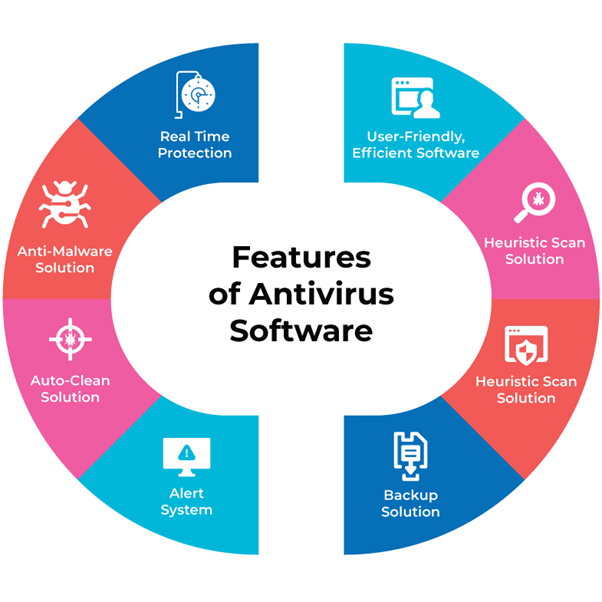
Features of Antivirus Program
Antivirus is designed to offer ultimate protection on your PCs, laptops, servers, smartphones, tablets, and all other devices that run an app or a program. Antivirus is programmed to block or quarantine infections however may include these features to enhanced protection.
- Scan, Detect, Block, Quarantine, or remove viruses and other infection
- Offers real-time protection to safeguard your browsing activity from infections
- Notify and warn you about any security breach, links, malicious websites, or downloads
- Perform a quick scan or a deep scan to check your emails, files, downloads and attachments
- Prevent fraud by hijackers, cybercriminals, phishing attacks, and secure your digital Identity
- Keeps you safe from the dark web to safeguard your identity and personal details
- Prevent you from ransomware attacks and safeguard your confidential data
- Protect your passwords and autofill information in a secured wallet
How Do Antivirus Detect Virus?
Antivirus programs are designed to perform a comprehensive scan to find and remove viruses. The algorithm is designed in a manner to update the known virus library and continuously updating the database. Antivirus companies store zero-day virus definitions on the cloud servers and the antivirus periodically connects to the server to fetch information about new database information.
Whenever you download or install a program, click on a link, download attachments, or perform any action, it initiates a quick scan and quarantines the found infections. Antivirus these days are also programmed to delete the infected file instead of quarantining.
Whenever an antivirus performs a scan, it matches all the incoming and outgoing files from the cloud database. If there is a match, it notifies and quarantines the infected file until you decide to delete it.
Best Antivirus Software
We have tested, compared, and reviewed dozens of the best antivirus software and listed the one that is robust in providing world-class security.
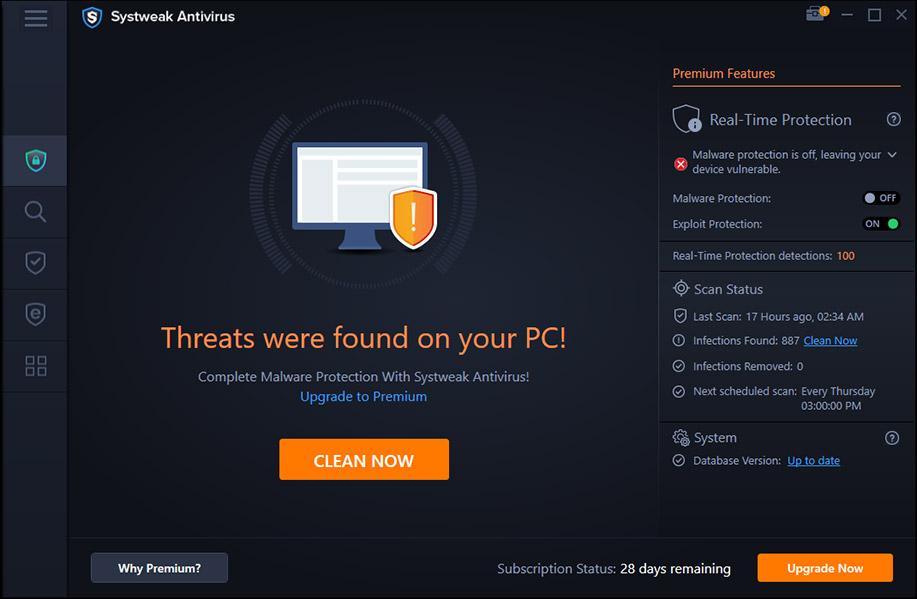
Systweak Antivirus
Inbuilt Firewall: Yes
VPN Compatible: Yes
Platform: Windows 10, 8.1, 8 & 7 (SP1)
Trial: 30 Days – (Scan Only)
Price: USD $39.95 / Year
Money Back: 60 Days
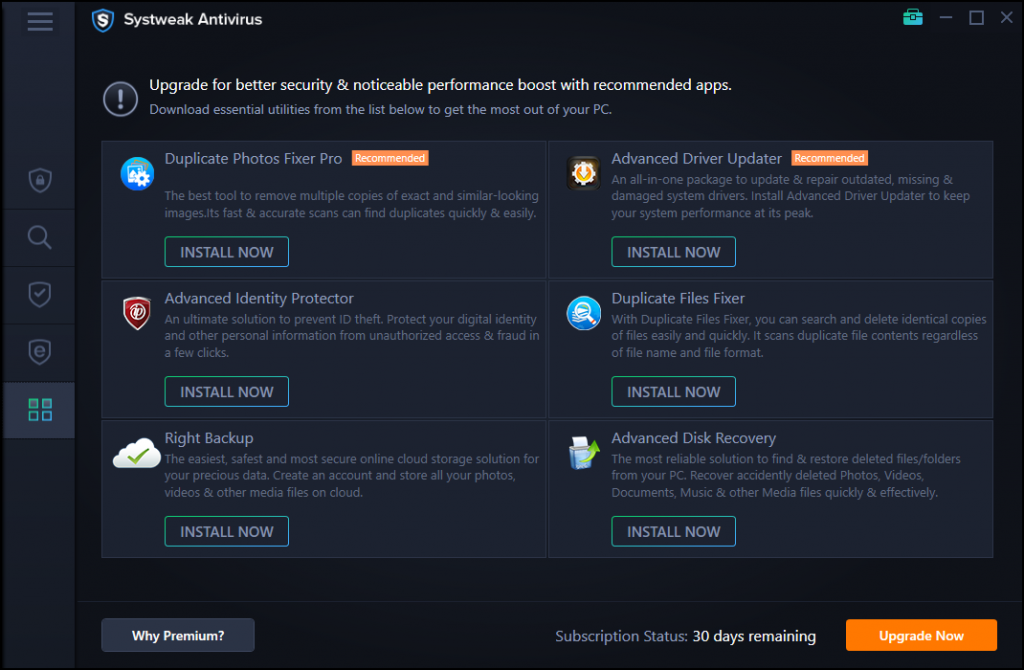
Systweak Antivirus is one of the Best FREE antiviruses that you can try in 2021 on your Windows 10 and earlier operating systems. It protects you against viruses, malware, spyware, trojan, adware and other ransomware threats.
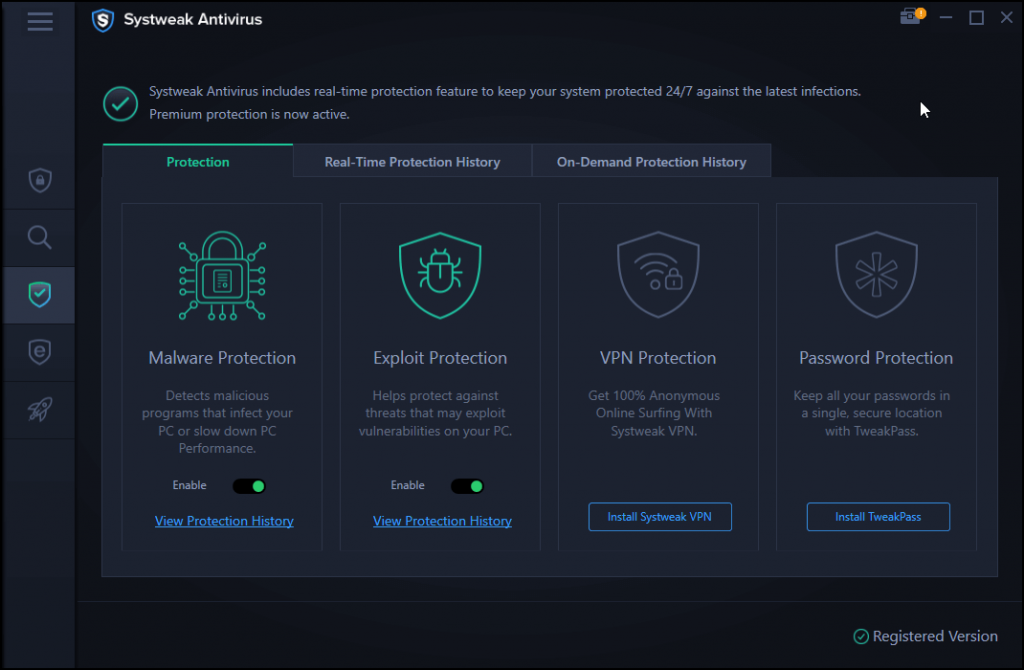
The real-time protection offered by Systweak is robust in offering exploit and malware protection on one or all computers in your family. It can find and remove Potentially Unwanted Programs (PUPs) and zero-day threats by automatically updating its database on a regular basis.
Summing Up
This article on how does an antivirus program detect malware is a true guide to understand different types of malicious programs and their impact. You have also explored how do antivirus detect viruses and which is the Best Antivirus software that can offer ultimate security. Systweak Antivirus is robust protection that you can use for your Windows.











